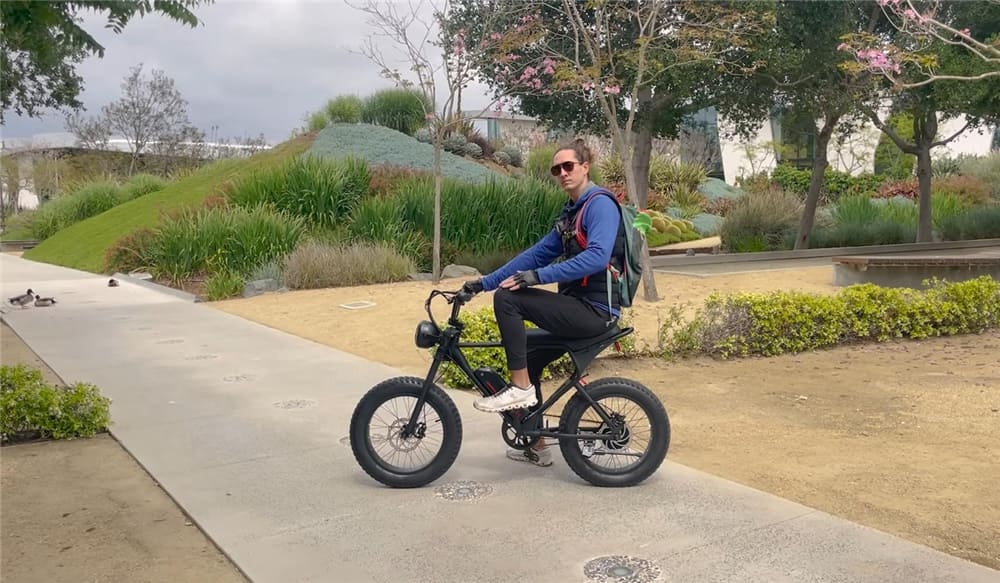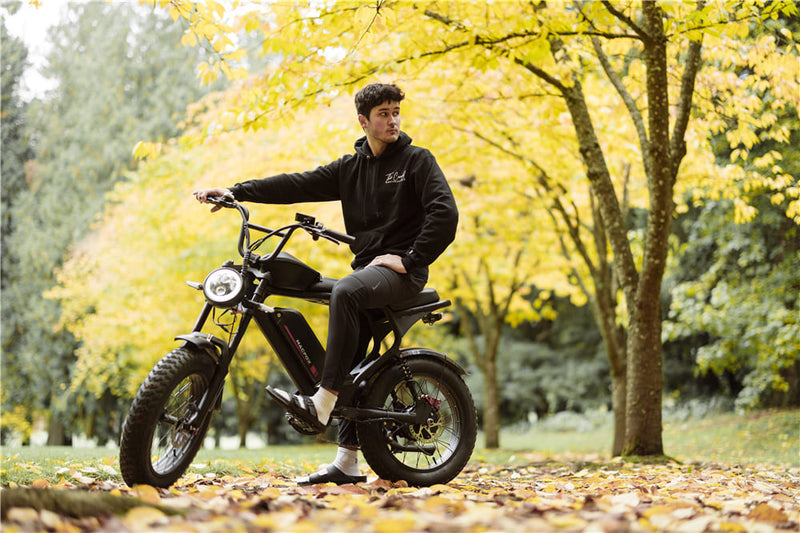Amidst the idyllic thoroughfares of America's quaint boroughs, a silent yet profound metamorphosis pedals its course—the ascendance of the electric bicycle, known colloquially as the ebike. This ingenious amalgamation of traditional pedal-powered cycling and contemporary electric propulsion presents an eco-conscious, health-enhancing, and financially judicious alternative. The ebike's rise mirrors a larger societal shift towards ecological stewardship and a re-envisioning of communal spaces. Exploring this phenomenon reveals the ebike's capacity to revolutionize daily transit, diminish ecological imprints, and knit communities closer.
The Growing Popularity of Ebikes in Small Town America
Ebikes are revolutionizing small town transport dynamics. Bridging the divide between conventional bicycles and motorized vehicles, ebikes cater to those yearning for automotive convenience sans the exorbitant costs and environmental repercussions. This transition is timely, coinciding with heightened ecological awareness and the urgency to diminish pollution and adopt verdant alternatives.
Furthermore, ebikes dismantle the confines of physical fitness and age, embracing a more diverse rider spectrum. The pedal-assist mechanism enables those who may find standard bicycles daunting, thus broadening commuting horizons across varied demographics. This fusion of accessibility, eco-friendliness, and community engagement is thrusting the ebike to the forefront of rural transit solutions.

Small Towns' Embrace of Ebikes
The allure of ebikes in hamlets is multifaceted, encompassing environmental, economic, and social elements. Environmentally, ebikes are a strategy to curtail greenhouse gas emissions, aligning with municipal efforts in the global climate crusade. Economically, they offer a cost-efficient commuting alternative, sparing inhabitants from escalating fuel prices and vehicular upkeep. Socially, ebikes foster community engagement, as cyclists are prone to interact more with their environment and fellow denizens.
Small towns are ideally positioned to reap the benefits of ebike commuting. Shorter travel distances render it a practical, daily choice, while generally less congested streets minimize cycling hazards. Moreover, these towns can more seamlessly introduce infrastructural enhancements like bike lanes and parking, fostering an ebike-conducive environment.
The health merits of ebiking are pronounced. While providing electric aid, riders still partake in physical exertion, combatting the sedentary lifestyle endemic in contemporary society. Additionally, the mental health boons of cycling, such as stress alleviation and mood enhancement, render ebikes an appealing option for holistic well-being.
Laying the Foundations for Eco-friendly Travel
Incorporating ebikes into the routine fabric of small-town existence necessitates infrastructure that endorses and facilitates their usage. This encompasses constructing exclusive bike lanes, establishing secure parking and charging stations, and formulating traffic regulations safeguarding cyclists. Such infrastructural advances not only make ebike commuting viable but also manifest a municipal commitment to sustainable, healthful lifestyles.
Communities are reconceptualizing their spatial layouts, giving precedence to verdant areas and interconnectivity. By connecting residential zones with business districts via bike-friendly routes, small towns can lessen car dependency, mitigate traffic congestion, and bolster local commerce. These structural changes are often coupled with educational initiatives targeting cyclists and motorists alike, cultivating a culture of road safety and reciprocal respect.
Ebike proliferation can also invigorate local economies. As residents economize on transportation, disposable income increases, potentially invigorating community spending. Additionally, the emergence of ebike shops, rental services, and tour enterprises can stimulate economic growth and create novel employment avenues.
Related Reading: What Else Can an Ebike Do Besides Commuting?
The Sociocultural Reverberations of Ebike Adoption
Ebike adoption in small towns transcends mere convenience; it signifies a cultural paradigm shift in mobility. This transition champions inclusivity and equality in transportation, making mobility solutions accessible to the elderly, physically challenged, and those sans car access.
Moreover, ebikes nurture community spirit. Collective rides and ebike clubs unite individuals from diverse walks of life, fostering social connections and shared objectives. These communal endeavors not only motivate more residents towards ebike commuting but also fortify local solidarity.
The psychological rewards of ebiking are profound. Riders experience a sensation of liberation and delight, a reconnection with nature, and a rediscovery of their locality's hidden gems. This psychological uplift has tangible impacts, enhancing community morale and contributing to a more dynamic public sphere.
A Beacon of Modern Commuting in Small Towns
In the field of electric bicycle commuting in small towns, Macfox X1 stands out and is hailed as the best electric commuter bike. With its 500W (750W peak) geared hub motor, it embodies the perfect combination of power and efficiency. The engine’s capacity ensures that the rider can easily tackle a variety of terrains and gradients commonly found in small towns. The Macfox X1 also boasts an impressive range of 38 miles per charge, which can be extended to an astonishing 76 miles using a dual-battery system. This range is particularly beneficial for smaller towns, where distances between homes, workplaces and amenities may vary.
Cruising at speeds up to 25 mph, the Macfox X1 caters to the need for quick and efficient travel within town limits, without compromising on safety. The 5-6 hours charging time aligns well with the daily routine of most commuters, allowing for an overnight charge or a convenient top-up during work hours.
This ebike is more than a mode of transport; it’s a testament to how advanced technology can seamlessly integrate into the daily life of small-town residents, enhancing their commuting experience while championing sustainable practices. The Macfox X1 stands out as an ideal choice for those seeking a reliable, high-performance ebike that aligns with the lifestyle and values of small-town living.

Conclusion
Looking ahead, ebike commuting in small towns holds tremendous potential. With advancements in battery technology, heightened environmental consciousness, and a burgeoning sense of community, ebikes are set to become a staple in rural transit. This trend is not a fleeting phenomenon but a sustainable, inclusive, and joyful reimagination of mobility in America's small towns.
As these towns continue to adapt and evolve with this trend, the impacts will transcend transportation.
FAQ
Q1: How do ebikes contribute to environmental sustainability in small towns?
Ebikes offer an eco-friendly alternative to traditional motor vehicles, reducing greenhouse gas emissions and noise pollution. Their energy efficiency and low carbon footprint make them an ideal choice for towns looking to decrease their environmental impact.
Q2: Can ebikes be used for more than just commuting in small towns?
Absolutely! Ebikes are versatile and can be used for leisure activities, running errands, or even as part of local tourism initiatives. They provide an enjoyable way to explore the town and its surroundings.
Q3: What is the long-term impact of ebike adoption in small towns?
Long-term, ebike adoption in small towns can lead to improved public health, reduced traffic congestion, enhanced community engagement, and a boost to the local economy. It represents a step towards a more sustainable and connected future.
We recommend for you:
- Discover the Hottest Sustainable Mobility Trend for 2023: Best Commuter Ebike
- Transform Your Commute with These Budget-Friendly E-Bikes
- Innovation Meets Comfort | Discovering The Best E-Bikes In 2023
- Commute In Style With The Macfox Best Commuter E-Bike
- Macfox: Redefining Your Daily Commute with Affordable Ebike

















